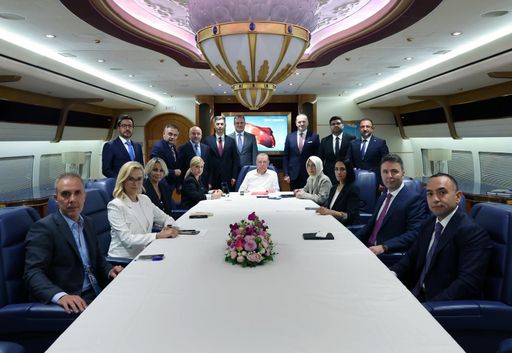Syria’s parliamentary elections, scheduled to take place on Sunday, will mark the country’s first attempt at establishing a new legislative body since the fall of the Assad regime in December 2024.
The electoral process fulfils the promise by President Ahmed al Sharaa – whose opposition forces toppled the decades-old Assad regime after a lightning-quick offensive at the end of 2024 – to turn Syria into a democratic, pluralistic, and inclusive country.
Here is a brief primer on the election exercise, how it is different from the so-called electoral process under the previous Baathist regime, and what it is likely to achieve in the long term.
Polls will be indirect
Unlike conventional elections, the upcoming exercise will be fully indirect. It will rely on electoral colleges – bodies of electors tasked with nominating parliamentarians – as well as appointed seats, rather than direct public voting.
The new parliament’s main job will be to manage the legislative side of the transitional period.
The 210-member legislature will pass laws, approve economic reforms, and help the government gain wider international recognition.
The assembly’s term will be 30 months. It is expected to enact legislation to stabilise the country and overhaul decades of state-controlled economic policies.
The assembly will exercise legislative powers until a permanent constitution is adopted, a process that could take up to three years.
Why the electoral college?
The decision by the transitional government led by President al Sharaa to go for indirect elections is based on pragmatism, analysts say.
Syria recently emerged from a 14-year-long civil war that killed hundreds of thousands of people and displaced a sizeable number of people internally. It forced many others to migrate to other countries.
As a result, the Syrian population remains scattered today. There’s no updated census, as millions still lack proper ID documents.
In addition, the indirect polling also reflects the government’s intent to maintain oversight during a delicate transitional period, where a number of players, both internal and external, are bent on destabilising the war-ravaged country.
Holding a direct national vote would be “nearly impossible” under current conditions, analysts say.
Stamp of legitimacy
The electoral exercise will further cement the legitimacy of the al Sharaa government, as it seeks to unlock diplomatic and financial support from multilateral institutions for economic reconstruction.
Indirect elections should be viewed as a “positive development” despite its “limitations”, according to experts, who believe al Sharaa’s administration is working to rebuild state institutions and integrate Syria into the international community.
The electoral exercise will foster a sense of legitimacy, which can pave the way for a more robust democratic process in the future.
This legitimacy is crucial for securing economic aid, defence cooperation, and diplomatic recognition from other countries, particularly those open to reengaging with Syria.

The electoral process
Al Sharaa appointed an 11-member Supreme Committee on June 13 to oversee the electoral process.
The apex body then set up electoral subcommittees at the district level. In turn, these subcommittees created electoral colleges of up to 50 individuals in their respective districts.
These electoral colleges consist of professionals, academics, and community figures tasked with nominating and selecting parliamentary representatives.
Two-thirds or 140 members of the legislature will be selected through the committee-led process, while the remaining one-third will be appointed by President al Sharaa.
Carved out by 14 governorates or provinces, the number of seats is based largely on population figures from the 2010 census. These are categorised into constituencies for community leaders and intellectuals.
The Associated Press reported that the elections in Sweida, the country's southernmost governorate held by Druze groups, and in areas of the northeast controlled by the terrorist YPG dominated SDF have been indefinitely postponed due to tensions between local Damascus-based authorities.
This means around 6,000 electoral college members will vote in 50 districts for about 120 seats on Sunday.
Women make up about 14 percent of the 1,578 candidates vying for parliamentary seats across the country’s 50 districts.
‘Elections’ under Assad regime
The rubber-stamp parliament from the Baathist years was sent packing when the opposition forces toppled the Assad regime last year.
Al Sharaa’s transitional government has been operating under a temporary constitutional declaration that covers a five-year transition period.
According to Mustafa Yetim, a professor of international relations at Türkiye’s Eskisehir Osmangazi University, the election marks a “notable improvement” over the country’s previous repressive Baathist regime.
“Sham elections” would take place every four years under Assad’s strongman rule.
The Assad-led Baath Party always dominated the parliament, as two-thirds of total seats were reserved for party members.
Assad’s opponents and international pro-democracy organisations labelled the last elections, in July 2024, as a farce.




















